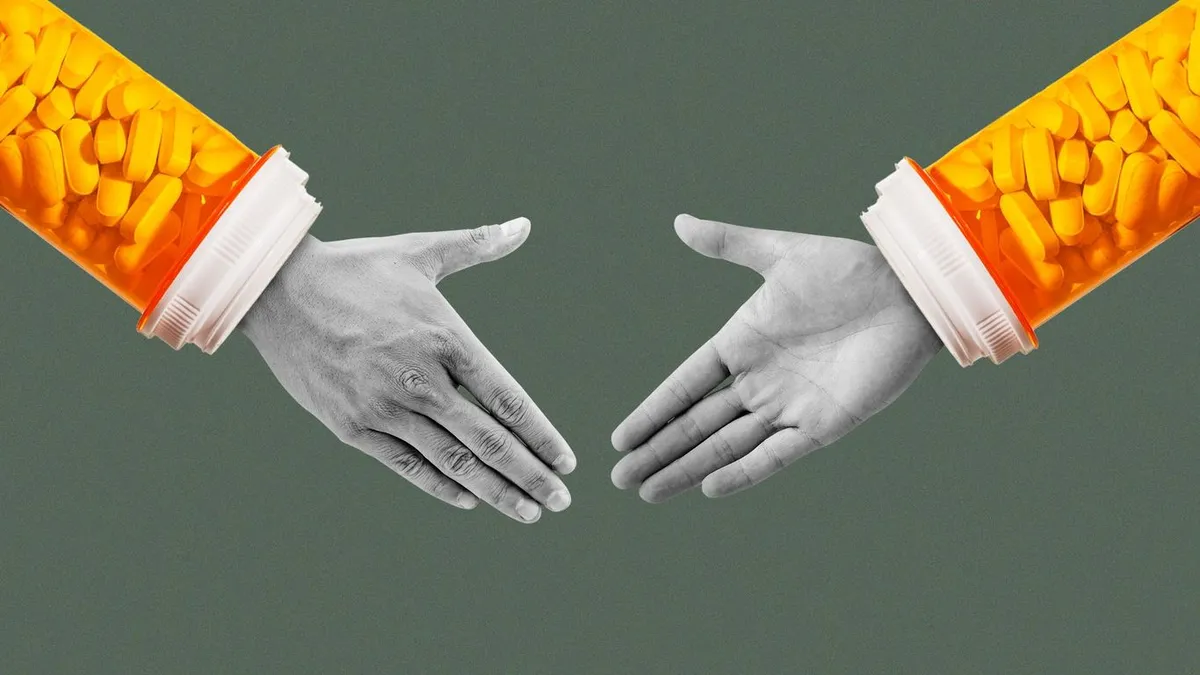
On Tuesday, Pfizer announced a surprising deal with the Trump administration regarding drug prices, which caused a significant uproar within the pharmaceutical industry. Many companies were caught off guard by this announcement, raising questions about its implications for the sector as a whole.
The decision by Pfizer's CEO, Albert Bourla, to comply with President Trump’s demands—broadcast live from the Oval Office—has intensified pressure on other pharmaceutical companies to follow suit. For months, the industry has shown unified resistance to Trump’s most favored nation pricing plan, and this unexpected agreement could shift the dynamics significantly.
Pharmaceutical lobbyists indicated that the scope of the agreement was broader than anticipated, compelling other companies to negotiate similar terms related to international pricing parity and other pressing issues. President Trump expressed his expectation that more companies would forge deals in the coming weeks, specifically naming Eli Lilly as a potential candidate. He even hinted at the possibility of imposing additional tariffs on companies that refuse to engage in discussions.
An insider familiar with the negotiations remarked on the surprise many companies felt, noting that while they were aware something was brewing, they didn’t believe a deal would materialize. This has prompted some to reconsider their strategies in dealing with the administration, particularly in terms of being more proactive in negotiations.
Albert Bourla, who also serves as the board chair of PhRMA, the pharmaceutical industry's leading trade group, has put other member companies in a challenging position. For months, PhRMA has actively opposed Trump’s pricing plan, making Bourla's deal particularly contentious. PhRMA CEO Steve Ubl commented that while each company is responsible for its pricing decisions, he criticized the newly announced pact for failing to address fundamental issues driving high drug prices in the U.S., such as pharmacy benefit managers (PBMs) and hospital markups. Ubl also warned that most-favored-nation pricing could stifle innovation.
The broader implications of this agreement could influence the pharmaceutical industry’s ability to avoid new pricing regulations, depending on how many companies opt to negotiate deals with the White House. Following the announcement, Pfizer's stock saw a notable increase of 6.8%, with other major drugmakers experiencing similar boosts. Bourla emphasized that the deal alleviates uncertainty regarding pricing and the looming threat of tariffs.
Under the terms of the agreement, Pfizer committed to not launching new drugs at higher prices in the U.S. than in other affluent countries. However, it did not impose an overall cap on launch prices. Additionally, Pfizer agreed to sell drugs to Medicaid at most-favored-nation prices and offer discounts on a direct-to-consumer TrumpRx website for cash-paying customers without insurance. Despite these commitments, the specific terms of the agreement remain confidential, as noted in the company's announcement.
Despite the agreement's potential benefits, significant limitations exist. The deal does not address existing drugs for individuals on Medicare or commercial insurance. Additionally, Medicaid already pays very low prices for prescription medications, and many consumers struggle to afford direct purchases without insurance coverage. Analyst Chris Meekins from Raymond James pointed out that the deal might lead to higher U.S. launch prices if European countries are charged more under Trump's plan, potentially prompting drugmakers to raise U.S. prices to compensate for delays in product launches.
Trump has made it clear that he prefers drug companies to voluntarily lower prices rather than enforcing regulations, which could be legally precarious. However, Tuesday's announcement did not clarify the administration's ongoing threat to implement most-favored-nation pricing through regulation, which could result in significant financial losses for manufacturers. Following Trump's comments about potential future deals, an Eli Lilly spokesperson confirmed that the company is engaged in active discussions with the administration and will provide updates soon.